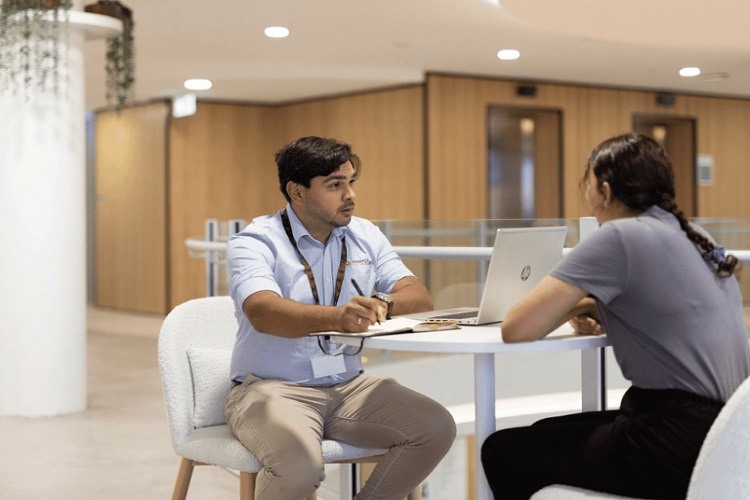Ensuring the safety of commercial tenants is a crucial responsibility for property owners and managers. Not only does a safe environment promote tenant satisfaction and loyalty, but it also mitigates liability risks and enhances the property’s reputation. In this article, we will explore essential safety measures that can help protect your commercial tenants, focusing on building security, fire safety, electrical systems, water and gas safety, slip and fall prevention, and tenant education.
Table of Contents
1. Building Security Systems
- Access Control One of the primary concerns for tenant safety is controlling who enters the building. Implementing secure entry systems, such as key cards or biometric systems, allows you to regulate access effectively. These systems not only enhance security but also provide tenants with peace of mind, knowing that their workspace is protected from unauthorized individuals.
- Surveillance Cameras Installing CCTV cameras in strategic locations—such as entrances, exits, and common areas can significantly deter criminal activities. Surveillance systems provide real-time monitoring and recorded footage, which can be invaluable for investigating incidents or thefts. By ensuring that your tenants feel secure, you foster a positive environment that encourages productivity and collaboration.
2. Fire Safety and Emergency Preparedness
- Fire Alarms and Sprinkler Systems Maintaining functional fire alarms and sprinkler systems is non-negotiable. Regular inspections are essential to ensure these systems work properly and meet safety codes. Additionally, conducting fire drills helps tenants familiarize themselves with emergency procedures and exit routes, reducing panic during real emergencies.
- Emergency Lighting and Exits Well-lit and clearly marked emergency exits are critical for tenant safety. In the event of a power outage or emergency, emergency lighting can guide tenants to safety. Regular checks of these systems ensure that they are operational, providing a secure escape route when needed.
3. Electrical Safety
- Regular Inspections and Maintenance Electrical hazards are a leading cause of workplace accidents. Conducting frequent electrical inspections helps identify potential issues, such as faulty wiring or overloaded circuits before they escalate into dangerous situations. Hiring certified electricians to perform these inspections ensures that your electrical systems comply with safety codes and regulations. For those in need of reliable electrical services, contact Powertec Electric for Commercial Electricians Winnipeg to ensure that your electrical infrastructure is in top condition.
- Tenant Education Educating tenants about basic electrical safety practices is essential. Inform them about the importance of not overloading power outlets, reporting flickering lights, and immediately addressing any exposed wires. Providing this knowledge empowers tenants to take proactive steps in maintaining a safe work environment.
4. Safe Flow of Water or Gas
- Gas Safety Gas leaks can pose serious health risks, making regular inspections vital. Ensure that gas lines and appliances are properly installed and maintained to prevent leaks. Installing gas detectors in appropriate areas can provide early warnings, allowing tenants to take swift action if a leak is detected. In case of a suspected gas leak, tenants should be educated on emergency procedures and whom to contact for help.
- Water Safety and Plumbing Maintenance Maintaining a safe water supply is equally important. Regular plumbing inspections can prevent leaks, flooding, and contamination, which could severely affect tenant safety. Installing backflow prevention devices is a proactive measure that helps ensure the integrity of the water supply. Additionally, using flow meters for industrial applications can help monitor water usage and detect irregularities that may indicate plumbing issues.
5. Slip, Trip, and Fall Prevention
- Proper Flooring and Signage Slip, trip, and fall accidents are common in commercial spaces, but many can be prevented. Maintaining non-slip surfaces in high-traffic areas reduces the risk of accidents. Clear signage indicating wet floors, uneven surfaces, or stairs can alert tenants to potential hazards, promoting a safer environment.
- Regular Maintenance and Cleanliness Keeping common areas free of hazards is essential. Regularly scheduled inspections help identify and address issues such as debris or liquid spills. Implementing a cleaning routine ensures that high-traffic areas remain safe and welcoming for all tenants.
6. Tenant Safety Education
- Hosting Safety Workshops Providing regular safety workshops for tenants is an effective way to enhance awareness of safety protocols. Topics can include fire evacuation procedures, first aid training, and reporting suspicious activities. This education empowers tenants to respond effectively in emergencies.
- Emergency Contact Lists Make sure tenants know who to contact in emergencies, including building management, maintenance personnel, and emergency services. Providing them with an easily accessible emergency contact list can save precious time during critical situations.
Conclusion
Protecting your commercial tenants requires a multifaceted approach that includes building security, fire safety measures, electrical and plumbing maintenance, slip and fall prevention, and ongoing tenant education. By prioritizing these safety measures, property owners can create a secure and welcoming environment that fosters tenant satisfaction and loyalty. Investing in safety not only mitigates risks but also enhances the overall reputation of your commercial property, making it a desirable location for businesses.

